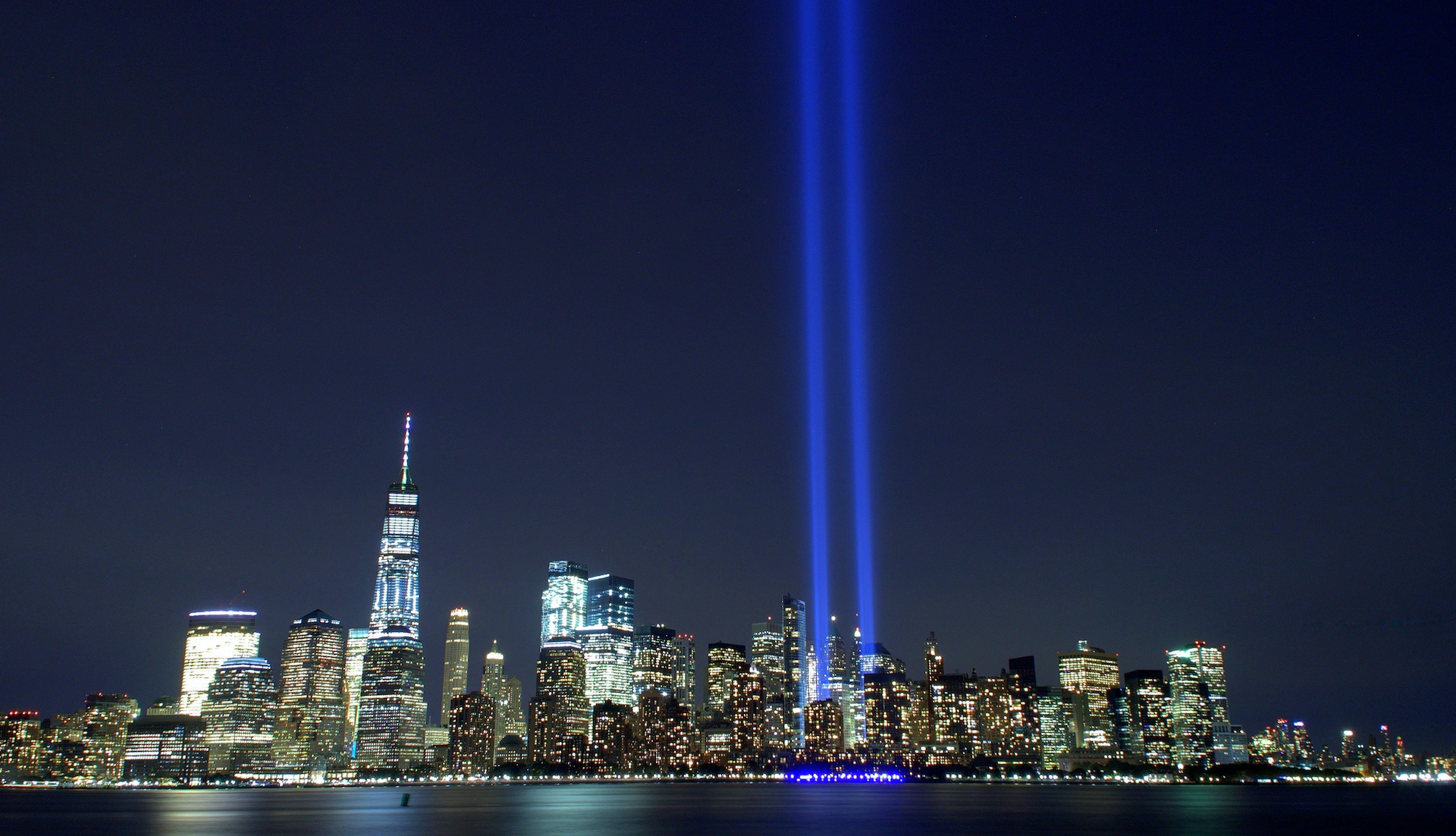How individuals and communities across the nation
are healing after September 11
September 11, 2001 was met with a bright, blue sky and what seemed like a normal Tuesday for most Americans – attending a morning staff meeting; dropping the kids off at school; tending to a list of errands and playing a round of golf.
But in a few hours, this average morning would change the world.
9/11 was one of the first major U.S. tragedies broadcast on live television as it was happening, says stress and trauma research scientist Dr. Dana Rose Garfin. The shock and scale of the event influenced Americans broadly, from family, friends and colleagues with direct ties to the many who were glued to their televisions, watching news footage and analysis repeatedly in the following days.
“9/11 was certainly one of the most impactful events of the modern era. It really threatened our society’s feeling of safety, security and vulnerability,” Garfin said.
The terrorist attacks and the aftermath of 9/11 has come at a high price: tens of thousands of lives were lost, national security and surveillance has been altered, a change in immigration policy led to an increase in deportations, and America launched its longest, costliest war in Afghanistan. Two decades later, those near and far remember a country that came together, making a vow to never forget.
Remembering the Past: The Day of 9/11
To fully acknowledge the collective trauma the nation faced, we must look back at the past 20 years. From first responders working on the ground to families waiting to hear from loved ones lost, they recall the moments following the tragedy across generations.
After a morning golf benefit for the New York City Fire Department, firefighter Joe McKay is reminded of a series of quick procedures in response to the attacks. First, the city-wide emergency recall. Second, a phone conversation with a fellow firefighter on site at the Twin Towers, a friend who wouldn’t survive that day. Then a trip to the nearest station to scramble for equipment; watching the collapse of the second tower; commandeering an MTA bus to get to the site; and waiting for word to enter Lower Manhattan.
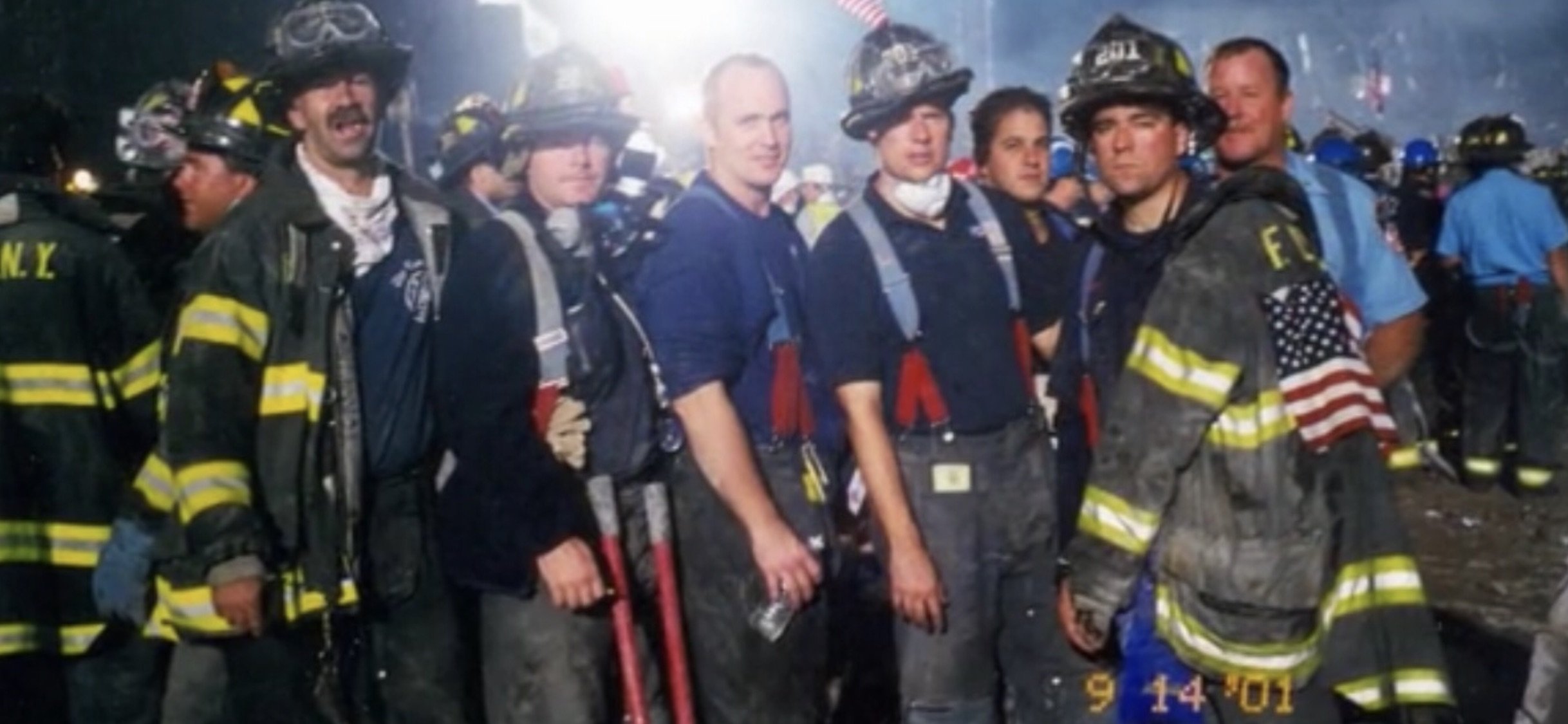
Courtesy of: Joe McKay
“We grabbed whatever we could, and we tried to find our guys,” McKay said. For two days, he put out fires with water brought in from the Hudson River and assisted in the search for missing victims at Ground Zero.
McKay’s detailed description of the day’s events would match what Garfin calls a flashbulb memory: a vivid “snapshot” of the moment or circumstance where a piece of surprising and consequential news was first learned about. It is why most Americans remember where they were and what they were doing at the moment they heard of the attacks, she explained.
McKay shared how it was difficult to leave the scene when ordered by his sergeant. “We didn’t want to leave. We felt like we still had a job to do there. Our guys were missing,” he said.
That same day, NYC construction supervisor John Feal was at Ground Zero just 12 hours after the attacks. Five days into his work clearing out debris, Feal was struck by a steel beam, causing sepsis that nearly cost him his life. He was later denied compensation for the injury.
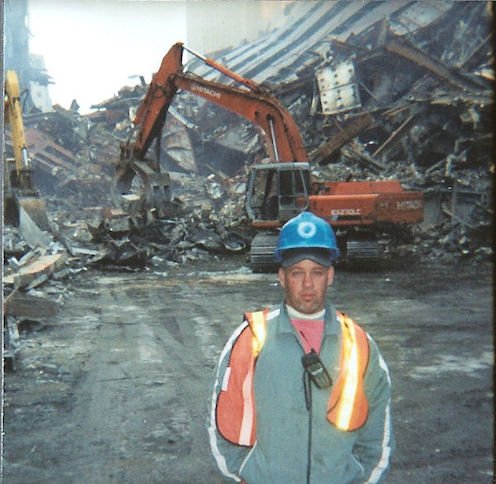
Everything felt different when he got out of the hospital. While attending support groups, Feal realized he wasn’t the only one suffering from the implications of the attacks. “Nobody is programmed to wake up in the morning and see that kind of s---, nobody,” he said.
Harry Morell was only 6 years old when he lost his father, who was working on the South Tower’s 80th floor on September 11. At the time, he was too young to understand the gravity of the situation, he said. “I remember getting pulled out of class,” Morell recalled. “I remember people freaking out, and not really knowing what’s going on.”
Susan Retik’s husband David was on American Airlines Flight 11 – his plane left Boston en route to Los Angeles, but struck the South Tower at 8:46 a.m ET. With two young children and pregnant with their third, the life she knew was shattered in an instant that day. “The support I received from around the country and around the world was so immense, and it’s what I believe helped us get through that really, really difficult time,” Retik said.
Collective Trauma and Healing
Reflecting on the devastation left behind, 9/11 remains clearly in focus for many families to this day.
“In the days and weeks after, if you were not at the Trade Center digging, you were either going to a funeral, a memorial, helping a family member out or working in the firehouse,” McKay said. He knew 26 of the 2,977 lives lost that day. The FDNY lost 343 firefighters on 9/11, and 110 more have succumbed to injuries and illnesses believed to be linked to the fall of the Towers, according to The Never Forget Project, whose mission is to support the families of the FDNY affected by 9/11.
Many people experienced post-traumatic stress disorder symptoms following the attacks, whether they lived in New York or across the country, Garfin acknowledged. PTSD symptoms include recurring, distressing memories, avoidance, out-of-body experiences, trouble sleeping and outbursts of anger.
On top of PTSD symptoms, McKay experienced torturing headache attacks, later diagnosed as cluster headaches. “I was in a pretty bad place, to say the least,” he said. “The real healing didn’t start until many years later.”
After surgery for the headaches, McKay retired and finally had time to come to terms with the trauma he faced that day – he sought treatment and found community through the FealGood Foundation, the nonprofit Feal started to help 9/11 responders. “I saw all these people getting sick and dying, losing their families, losing their houses, the kids in rehab,” Feal said. “Everyone said to start a foundation.”
Now, the foundation is dedicated to assisting U.S. medical emergency personnel who have been injured in the line of duty. “A lot of guys are still seeking help,” McKay said. “Your psyche processes it slowly.”
While it’s difficult to talk about, it’s important to remember the story of that day, he said. Twenty years later, few things help as much as extending his hands out to help someone else.
“I try to make some good come out of the bad that has happened. That’s a big part of my coping mechanism: to put some good back in the world,” McKay said.
Two decades later, Feal is now known as a political activist, though he feels that the work he does isn’t really political. His trips to Congress fighting for health compensation for those affected by 9/11, his continued work with TV personality and advocate Jon Stewart and his vocation to speak up is simply justice, a reminder of the oath America made to never forget. Feal’s story, and his campaign efforts with Stewart, are featured in "No Responders Left Behind," a new documentary by Discovery.
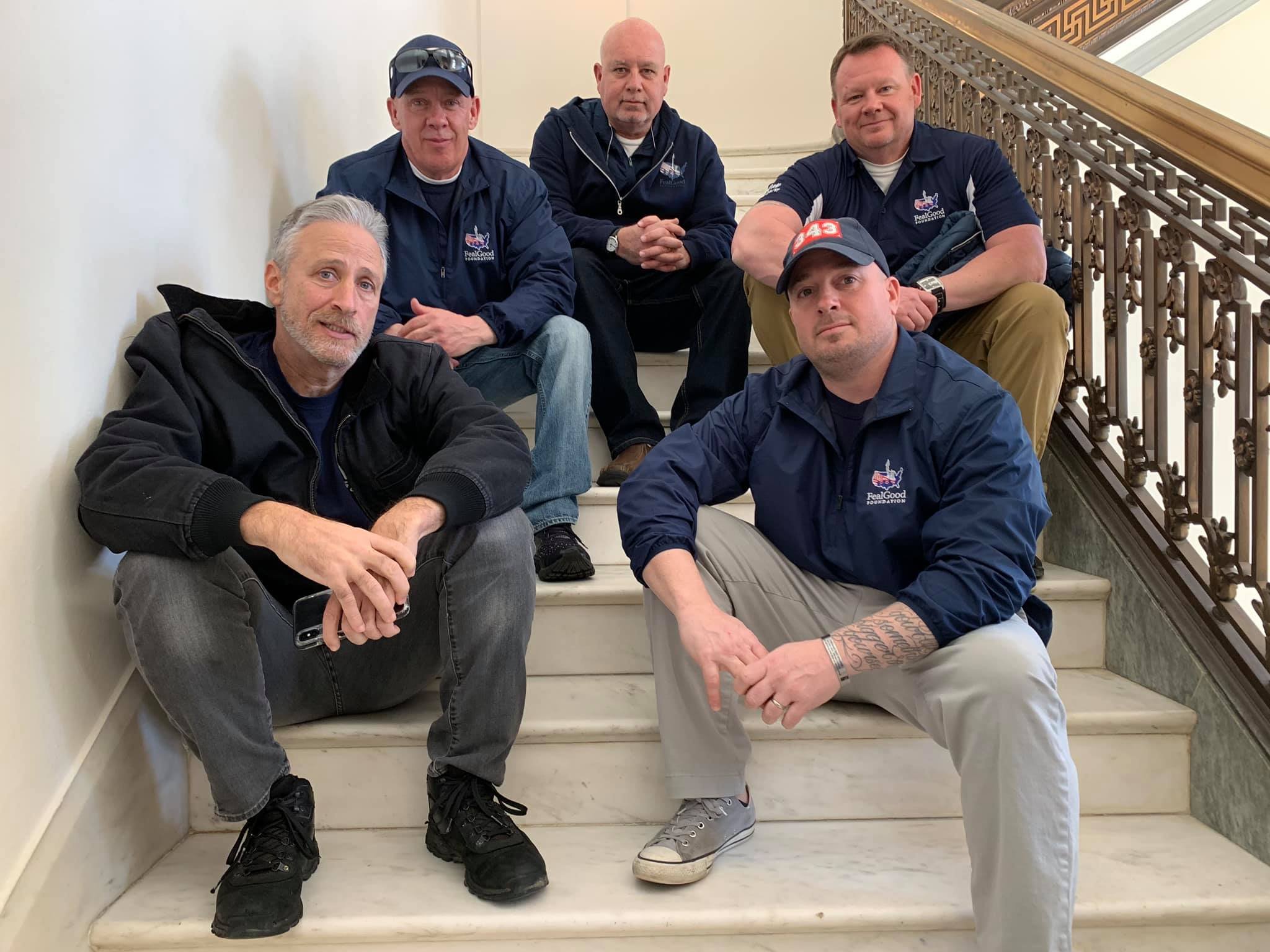
Courtesy of: John Feal
Fate of Afghanistan and Taliban Rule
Even through mourning, Retik made a profound connection early on: The U.S. would soon invade Afghanistan, where the 9/11 terrorists were trained, meaning that the loss she experienced would become the same life-altering reality imposed on many Afghan women. “If it's so bad to be a woman in Afghanistan, what would it be like to be a widow?” Retik asked.
Thinking about women like herself in a country with far fewer freedoms, she sought out information to understand. “What I learned was so shocking to me. For example, under Taliban rule, women were not allowed to leave their house without a male escort. Which meant, as a widow, how do you move about and do simple things?” she said. “When your husband dies or is killed, the children don’t necessarily get to stay with you. His family has the power to take the kids from you. It’s complicated.”
Retik and other 9/11 widows worked together to form Beyond the 11th, a nonprofit dedicated to helping Afghan widows. From there, she said, it snowballed into something much greater. The foundation partners with NGOs in Afghanistan that have knowledge of the political landscape in order to work around current laws restricting rights of women in the country. “I’ve always thought the work that we do is amazingly beneficial for those women that we serve, and it’s been incredibly beneficial for me as well in terms of how I moved through this tragedy. It gave me something positive to focus on,” she Retik.
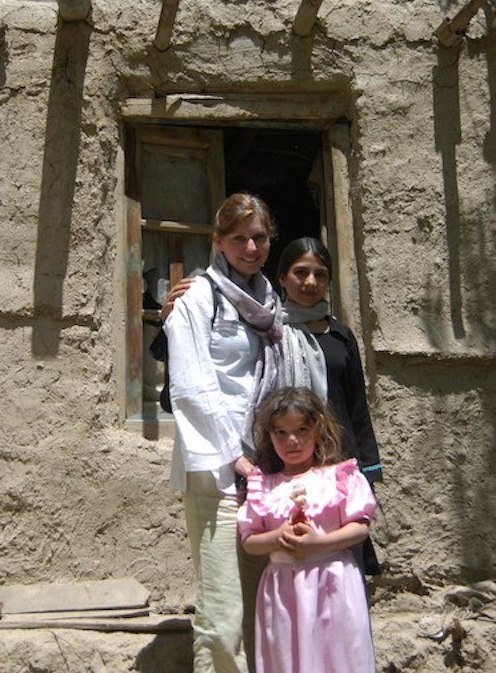
As American troops withdrew from Afghanistan in August 2021, marking an end to the nearly 20-year war, the Taliban swiftly seized power in the country once again, attacking several major cities and killing at least 13 U.S. service members and 90 Afghans, according to the Wall Street Journal. Now, many are left wondering: What is the next step forward?
While the rise in Taliban rule has been devastating, Retik remains hopeful. Over the last two decades, there’s been progress in Afghanistan: roads and schools built, millions of girls educated. For the time being, programs are still ongoing – but with much flexibility and pausing when necessary, Retik said.
“You can not take that away,” Retik said. “Once a girl has been educated, no matter what happens, that knowledge is not going anywhere. She then has that opportunity to teach the generation below, so I think it's so powerful.”
"Never Forget" – Families Fight On
In the years following the attacks, Morell was the youngest attendee of Tuesday’s Children, a camp for children affected by terrorism. Now, he volunteers for the organization, focusing on providing healing for families affected by acts of terrorism.
Morell said he quickly realized that while many people fall into despair after tragedy, they also find ways to fight on. “For every little boy, their father is their idol, their hero and someone to look up to,” Morell said. “Despite it being the most tragic day of my life in some sense, in some sense I’m lucky to have a perfect hero. The lesson there is that perspective is everything.”
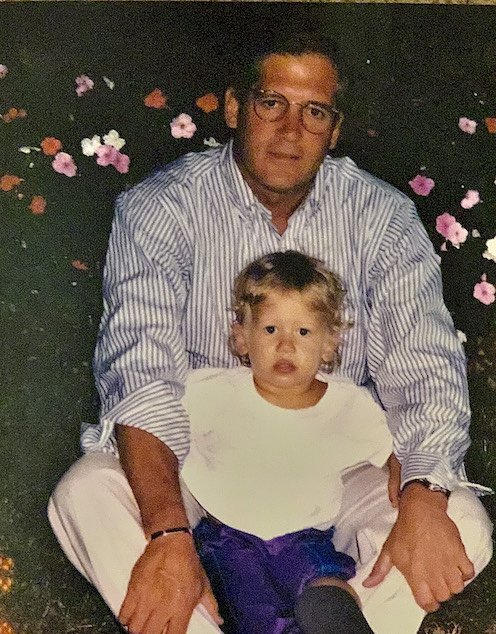
While you can’t help everyone everywhere, Retik said, you can help some. It’s a ripple effect. The question that remains is empathy. Who will continue to ask the question: What can I do today?
“This is an ongoing issue. There’s so many moving parts to this. No one owns 9/11. We’re all stockholders, but some of us have more stock than others,” Feal said. “We need to remember how we reacted, how we responded to that tragedy and how we came together.”
Maybe the days approaching annual remembrance feel like just another morning: a bright blue sky and another decade forward. But September 11, 2021 can also serve as a day to remember what we’ve been through together, and what more we can do.
Resources for 9/11 Victims and Their Families
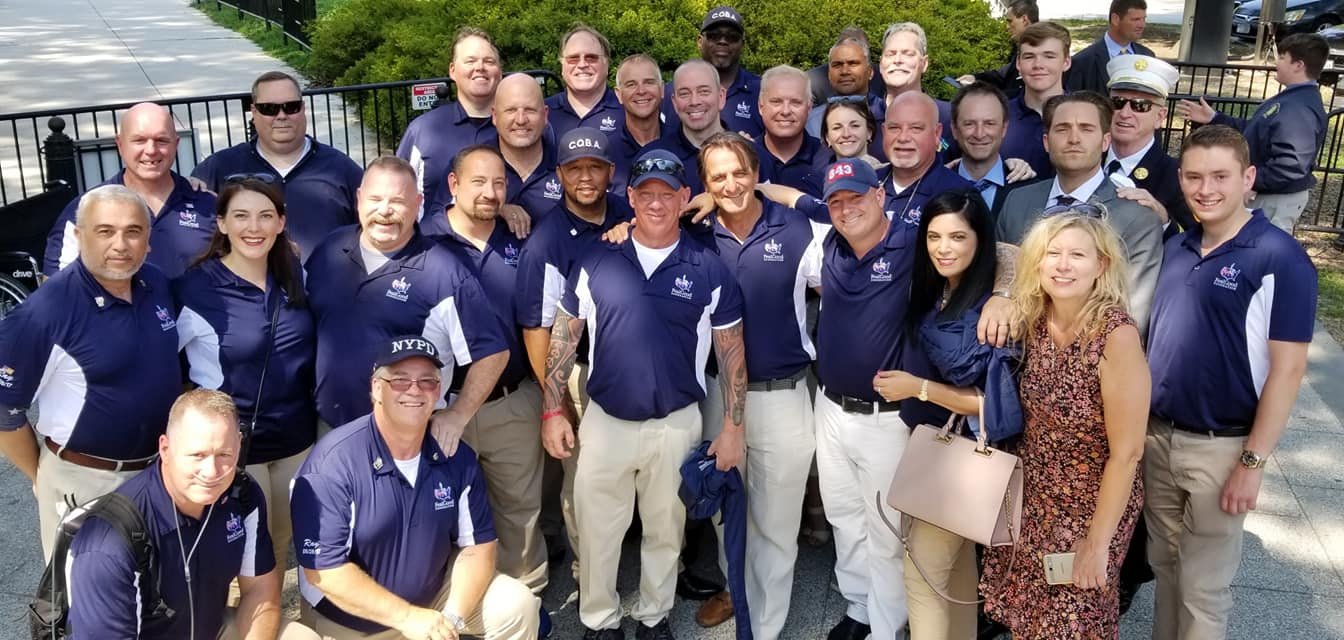
The FealGood Foundation assists emergency personnel within the United States who have been injured due to action or omission in the course of their duties or within their everyday lives.
Beyond the 11th partners with international aid groups to provide job training and economic opportunity to Afghan widows.
Tuesday’s Children provides a lifetime of healing for families who are forever changed by terrorism, military conflict or mass violence.
The World Trade Center Health Program provides care to those directly affected by the attacks of 9/11 – first responders and New York City survivors alike – including cost-free medical and mental health services.
The New York State World Trade Center Memorial Scholarship guarantees a college education for children, spouses and financial dependents of 9/11 victims, including fully-paid admission to all SUNY and CUNY schools or equivalent aid for attendance to private New York State colleges.
The September 11 Families’ Association, founded by widows of the FDNY, shares peer support and services for all victims of terrorism.
Friends of Firefighters Inc. provides free and confidential mental health support to both active and retired FDNY firefighters and their families.
Discuss and engage with us on Facebook, Instagram, Twitter and TikTok by using the hashtags #September11 and #NeverForget and tagging us @worldchannel. Subscribe to our newsletter and YouTube for more features including events and interviews.
Enjoy our content? Consider donating to keep important storytelling like this going, and find more on PBS Passport.


